A recent event brought together 19 participants to discuss the successful pilot of a secure digital learning platform designed for young people in educational centres. The platform aims to equip them with essential vocational and digital skills to support their reintegration into society.
At the IPS-organised event “Ctrl+Alt+Reform: Unlocking Digital Skills in Juvenile Offender Education”, the day was filled with insightful discussions, with expert speakers addressing the critical gap in safe internet access within the Portuguese juvenile justice system.
The highlight of the event was the TRIANGLE platform, which has already been successfully showcased in several institutions and piloted at Navarro de Paiva Educational Centre. One of the speakers, Dr José Falcão Amaro, the Director of this Educational Centre where the platform was tested, shared first-hand experiences of its impact.
Beyond partnership members presenting the project and its achievement, other speakers included Dr Margarida Macedo, Director of the Portuguese Juvenile Justice Services (DGRSP-MJ), Dr Maria Perquilhas, a Judge at the Évora Court of Appeal, with a distinguished career in family and children’s law and a member of the Educational Centres Monitoring and Inspection Commission,and Dr João Baracho, the Executive Director of CDI Portugal, a non-governmental organisation dedicated to digital inclusion and social innovation.
Bridging the digital divide in Juvenile Justice
A central theme of the event was the persistent challenge of providing secure internet access in educational centres for young people in conflict with the law. Dr Maria Perquilhas highlighted the importance of focusing on these individuals, stressing that they are more likely to continue a life of crime without early intervention.
The gap in digital skills has long restricted opportunities for vocational training and digital literacy in educational institutions, an issue the TRIANGLE platform is designed to address. At the event, it was emphasised that digital skills can help young people develop their social competencies and self-esteem, contributing to their rehabilitation and aiding in social reintegration.
In Portugal, there has been a rise in new offences committed by young people, many of which involve digital affiliations, further underlining the need for such initiatives.
Throughout the pilot phase, young individuals in detention centres were able to access safe online learning environments, developing both formal and non-formal educational skills.
During the event, participants had the chance to interact with the platform, offering positive feedback. Many described it as a “comprehensive and essential tool” for providing young people in conflict with the law the digital and vocational skills needed for the modern workforce and acknowledged its interactivity and user-friendly usability.
The TRIANGLE platform has been carefully designed to ensure it offers a secure, structured environment that fosters personal development, education, and practical skills, all essential for the rehabilitation and reintegration of these young people.
TRIANGLE: An innovative solution for digital education
At its core, the TRIANGLE project aims to build a secure, digital education system tailored to the vocational needs of young people in secure care and detention centres. The platform brings together the key elements of People, Platform, and Programme, creating a holistic learning environment that supports social reintegration.
Through this platform, students and teachers alike are introduced to a safe online space where formal education and vocational training can take place.
The TRIANGLE platform is the product of a wide-ranging collaboration across Europe, with content tailored to the specific contexts of Belgium, the Netherlands, Portugal, and the broader European region. Each country-specific segment is carefully adapted to meet the educational and cultural needs of the young people it serves.
In Portugal, where the project is led by IPS_Innovative Prison Systems and Aproximar, the platform includes eight key sections covering topics from financial literacy to digital skills, sustainability, and personal development.
The success of the TRIANGLE pilot is a promising step towards greater digital inclusion for young people in conflict with the law. By providing access to a safe, structured online environment, TRIANGLE offers not only educational opportunities but also a crucial bridge to the outside world, helping young people develop the skills and confidence they need to reintegrate into society.
Know more about this project
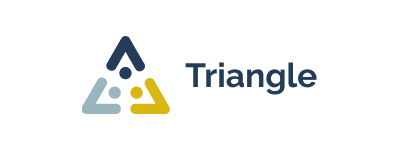
TRIANGLE
Secured digital education system for vocational skills for youngsters in closed institutions
The TRIANGLE project is led by Click F1 (The Netherlands) and partnered by the Stichting Defence for Children International (The Netherlands), IPS_Innovative Prison Systems (Portugal), Eduvier (The Netherlands), the Flemish Support Centre for Adult Education (Belgium), The Federal Public Service Justice (Belgium), Aproximar (Portugal), Foundation 180 (The Netherlands), and Opgroeien (Belgium).
For more information about the TRIANGLE project, please visit www.eu.trianglenow.eu
Related projects

STEP2LAB
Systematic Transition from Prison into the Labour Market
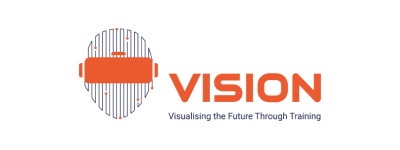
VISION
Visualising the Future Through Training

NEXT STEPS
Development and testing of a process chain for the placement of former detainees as specialists in the labour market

PREVEX
Preventing Emotional and Sexual Abuse Among Young People

TRAIVR
Training of Refugee Offenders by Virtual Reality

ViRTI
Virtual reality for training inmates

BLEEP
Blended Learning Environment for European Prisoners

VR4DRUG Rehab
Developing and Using Virtual Reality Technology for the Rehabilitation of Drug Users in Probation Services

Coding-OUT
Coding in prison as a valuable OUTside tool for employment
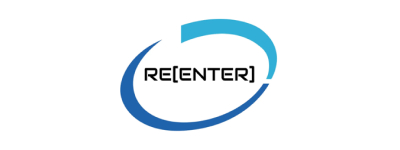
RE[ENTER]
Strengthening the capacity of criminal justice professionals and volunteers
Related news
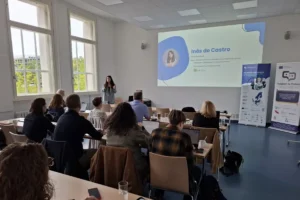
IPS showcases virtual reality solutions for skills development and stress management at Berlin workshop
Read More »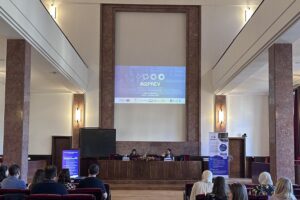
IN2PREV Final Conference highlights cross-sector collaboration for refugee inclusion and radicalisation prevention
Read More »
JUSTICE TRENDS Magazine Launches 14th Edition: Expanding the Frontiers of Rehabilitation Support
Read More »





